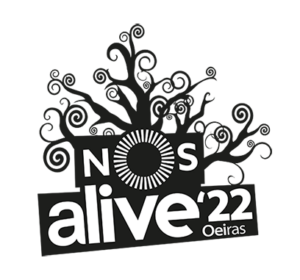NOS Alive – IGC Fellows
Since 2009, over 450 young graduates around the country have applied to these fellowships and there has been 22 fellows.
2022
Camila Costa and Inês Geraldes
2019
Margarida Cardoso and Beatriz Filipe
2018
Joana da Silva was one of the 2018 NOS Alive fellows, having developed a project in the Disease Genetics group, led by Carlos Penha-Gonçalves, at IGC. Her project aimed to study the role of interferon-β in the development of cerebral malaria, helping to understand the mechanisms that cause the onset of the disease.
Beatriz Mourato was one of the 2018 NOS Alive fellows, having developed a project in the Population Genetics and Conservation group at the IGC, led by Lounès Chikhi. Her project aimed to infer demographic histories of populations.
2017
Alexander Marta has a degree in Biology of Global Health. He was one of the awardees with a 2017 NOS Alive fellowship in Infection and Immunity, for a project developed at the Disease Genetics Group, led by Carlos Penha-Gonçalves, at IGC. His project aimed to investigate how placental inflammation caused by malaria establishes severe maternal and fetal disease outcomes, assessing vascular homeostasis in fetal derived trophoblast immune response.
Francisco Paupério has a degree in Biology and a Masters in Computational Biology and Bioinformatics by the Faculty of Science of University of Porto and Lisbon, respectively. He was a 2017 NOS Alive Fellow with a project entitled “Antibiotic treatment and host immunity interplay during acute and chronic intracellular infection”. His project aimed to explore the role of host immunity in treatment dynamics of chronic and acute infections, focusing on Mycobacterium tuberculosis and Listeria monocytogenes as two model systems. Francisco developed his project in the Mathematical modelling of biological processes group at IGC, led by Erida Gjini.
2016
Ana Eugénio, has a degree in Biology and a Masters in Evolution and Developmental Biology. She was the 2016 NOS Alive Fellow with a project entitled “Are host individual differences relevant for parasite virulence and transmission?”. Ana’s project aimed to study the role of host genotype in the relationship between parasite virulence and transmission, using the Drosophila melanogaster as a model organism, in the Evolution and Development group at IGC, led by Élio Sucena.
Tiago de Zoeten, has a BSc in Biological Sciences with Honours in Evolutionary Biology by the The University of Edinburgh, UK and also won the 2016 NOS Alive fellowship. His project entitled “Genetic and demographic consequences of habitat loss and fragmentation in Madagascar” aimed to develop models and software to analyse the population genetic consequences of habitat loss and fragmentation and to collect samples for genetic and genomic analysis from lemurs and other species in Northern Madagascar. Tiago developed this project in the Population Gentics group at IGC, led by Lounès Chikhi.
2015
Patrícia Santos, has a degree in Forensic and Criminal Sciences and a Masters in Human Biology. Patricia won the 2015 fellowship in Biodiversity and developed her project in the Populations Genetics group at IGC, led by Lounès Chikhi. Patricia proposed to analyse genomic data of endangered species to aid in the reconstruction of their demographic history. Patrícia was a PhD student at the Università degli Studi di Ferrara, Italy.
Margarida Araújo, has a degree in Biology and a Masters in Evolution and Developmental Biology and was one of the awardees in 2015 with a fellowship in Cancer genetics, for a project developed at the Actin Dynamics groups at IGC, led by Florence Janody. Her project aimed to understand whether changes in certain proteins important for the functioning of the cell skeleton lead to the development of breast cancer. After finishing her fellowship, Margarida enrolled in the IGC PhD programme.
2014
Tiago Maié, has a Masters degree in Bioinformatics and Computational Biology, and was one of the awardees with a fellowship in Biodiversity, for a project developed at the Population and Conservation Genetics group at IGC. His project aimed to study the effect of habitat loss and fragmentation of forests on lemurs and other endangered vertebrates of Madagascar. After finishing his NOS Alive fellowship, Tiago Maié continued his research at the Population Genetics group where he developed a software that simulates complex demographic scenarios and on a second project he is responsible for creating a framework of analysis of genomic data of a species of primate that is at risk of extinction in the west coast of Africa.
Gonçalo Matos, has a Masters degree in Evolution and Developmental Biology and was one of the awardees with a fellowship in Genetics and Evolution, for a project developed at the Evolution and Development group at IGC. His project aimed to investigate whether there is a direct link between the immune system and the longevity of organisms, using the fruit fly as a model organism. Gonçalo Matos was a PhD student of the Host-Microorganism Interactions group at IGC.
2013
Helena Teixeira, has a degree in Biology and was one of the awardees with a fellowship in Biodiversity, for a project developed at the Population and Conservation Genetics group at IGC. Her project aimed to study the effect of habitat loss and fragmentation of forests on lemurs, one of the species at risk of extinction in Madagascar, a biodiversity hotspot. After that Helena Teixeira iworked in the reforestation project of Gorongosa National Park and enrolled in a Masters degree in Biodiversity, Genetics and Evolution at the Universidade de Coimbra.
Filipe Vieira, has a degree in Biology and was one of the awardees with a fellowship in Microbiology, for a project developed at the Bacterial Signalling group at IGC. During his project, Filipe Vieira investigated the molecular mechanisms that are involved in the interaction between bacteria and infected hosts, particularly those that occur between bacteria and insects that cause the transmission of diseases in humans. Filipe Vieira was PhD student in the Bacterial Signalling group at IGC.
2011
Célia Rodrigues, has a degree in Biology and was one of the awardees with a fellowship in Biodiversity, for a project developed at the Population and Conservation Genetics group at IGC. Her project aimed to understand the effects of loss and habitat fragmentation, both in structure and density of populations of lemurs, and also in its genetic fingerprints using molecular tools on the island of Madagascar. Celia Rodrigues joined University College London, UK, as a research technician.
Diogo Santos, has a Masters degree in Bioinformatics and Computational Biology, and was one of the awardees with a fellowship in Bioinformatics, for a project developed at the Computational Genomics group at IGC. His project aimed to identify genetic sequences responsible for the appearance of some types of cancers, a very important step in understanding its mechanisms, using genetic data and bioinformatics techniques, contributing for a better understanding of the functioning of carcinogenic mechanisms. Diogo Santos was a PhD student of the Evolution and Structure Genomics group at IGC.
2009
Sam Viana, has a degree in Biology and was one of the awardees with a fellowship in Biodiversity, for a project developed at the Population and Conservation Genetics group at IGC. His project aimed to estimate the density of two endangered species of nocturnal lemurs in northern Madagascar. Sam Viana was a PhD student of the Systems Neuroscience at the Champalimaud Research in Lisbon and was also involved in the organisation of science and culture events.
Francisco Freixo, has a degree in Biology and was one of the awardees with a fellowship in Malaria, for a project developed at the Genetic Diseases group at IGC. His project aimed to study factors that influence the infection and development of malaria in populations of Principe Island, Sao Tome and Principe. Francisco Freixo developed his PhD project at the Institute for Research in Biomedicine (IRB) in Barcelona.
2008
Alexandre Leitão, has a degree in Biology and was one of the awardees with a fellowship in Genetics and Evolution, for a project developed at the Evolution and Development group at IGC. His project aimed to unravel the evolutionary origin of the immune system. Alexandre Leitão, completed his PhD in 2014 from the Universidade Nova de Lisboa and joined the University of Cambridge, UK as a postdoc.
João Alves, has a degree in Applied Biology and was one of the awardees with a fellowship in Biodiversity, for a project developed at the Population and Conservation Genetics group at IGC. His project aimed to study the effect of habitat fragmentation in some species of large mammals at risk of extinction. João Alves, completed his PhD in 2014 from the Universidade do Porto and joined a university in Vigo, Spain, as a postdoc.
Related information:


